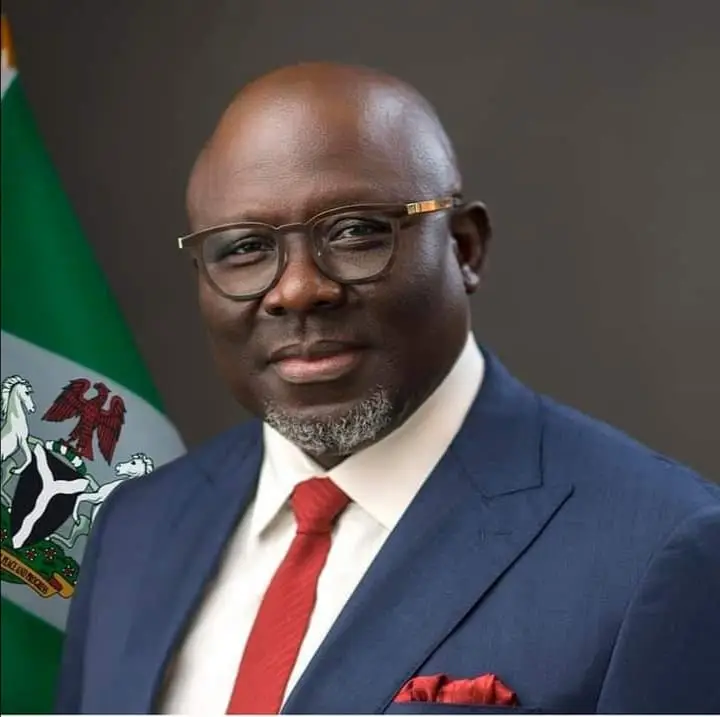Student loan: N20,000 monthly stipend may be increased, according to NELFUND


The Nigerian Education Loan Fund stated that it would regularly review Nigerian students’ N20,000 monthly stipends depending on economic realities.
Oseyemi Oluwatuyi, the Fund’s Director of Corporate Communications, confirmed this in an interview with our correspondent in Abuja on Wednesday.
In addition to institutional fees, student loan candidates can apply for upkeep loans. While institutional payments are paid directly into the institutions’ accounts, upkeep is paid directly into the applicant’s account.
Currently, each student receives N20,000 monthly.
The Fund recently stated that it has paid the monthly stipend of N20,000 to over 20,000 students.
Speaking with our correspondent in Abuja, Oluwatuyi, when asked if the Fund would review the amount paid as upkeep in line with harsh economic realities said, “Certainly, the N20,000 per month is just a starting point, the fund will adjust the stipend from time to time in line with economic realities.”
Speaking further on students who applied for student loans but were sent out of examination halls, she said, “For the students who were sent out of the hall because of school fees, we can’t comment on that for now because we don’t know which semester exams they were writing.
Some students are in their second semester and still expect the loan they applied for to cover the current session, it can’t work that way
“NELFUND will cover 100 per cent of fees for students starting from their next session (if they are already in the second semester). We won’t also pay retrospectively.”
Meanwhile, NELFUND disclosed on Wednesday that 22 more state-owned tertiary institutions had been cleared for participation in the student loan scheme.
The fund disclosed this on its official X handle on Wednesday.
“The Nigeria Education Loan Fund has announced that students from the following 22 state-owned tertiary institutions can now apply for loans on its portal: nelf.gov.ng
“This followed a review by the committee responsible for the Student Verification System. Prior to this, 86 state-owned institutions were cleared, bringing a total of 108 institutions whose students are now able to apply,” the statement posted via @NELFUND on X said.
The inclusion of 22 state-owned institutions raises the total number of recognised state institutions to 108.
The implementation of the student loan scheme is President Bola Tinubu’s flagship project in the education sector.
Tinubu signed the Access to Higher Education Act barely a month after taking office, which creates a legal framework for granting loans to indigent or low-income Nigerians to help them pay their tuition at Nigerian tertiary institutions.
The law, reenacted earlier this year, created the Nigerian Education Loan Fund.
NELFUND is responsible for all loan requests, grants, disbursement, and recovery.
The fund, according to the act, will be funded from diverse sources and will engage in other productive activities.
On Wednesday, the National Association of Nigerian Students thanked the Economic and Financial Crimes Commission for transferring N50bn in crime proceeds to NELFUND for student loans.
In a statement released in Ibadan, the capital of Oyo State, NANS Senate President Babatunde Akinteye stated that the gesture was not only a reflection of the EFCC’s dedication to combating financial crimes, but also a demonstration of its commitment to the future of Nigerian students, who will be tomorrow’s leaders.
He said, “I wish to express my profound gratitude to the EFCC for their generous donation of N50bn to the Nigerian Education Loan Fund.
“In a country where the cost of education continues to rise, many students face significant financial barriers that prevent them from achieving their academic aspirations.
“The introduction and bolstering of the Nigerian Education Loan Fund through this substantial donation will provide a much-needed lifeline for countless students across the nation. This initiative will enable them to access the education they rightfully deserve, empowering them to contribute meaningfully to society,” Akinteye said.





![UNILAG Academic Calendar for 2019/2020 Session [UPDATE] UNILAG](https://sundiatas.net/wp-content/uploads/2019/11/UNILAG.jpg)


